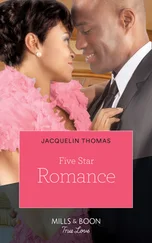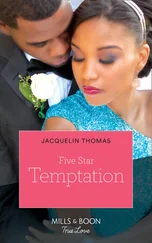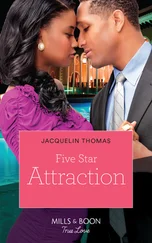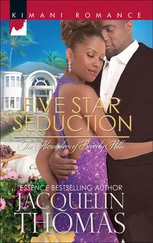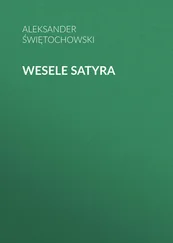Phoebe smiled. “He might still come,” she said. “I’ll wait awhile longer.”
“Have a snack,” the man said, holding out a chicken-wing skewer.
“Thanks,” Phoebe said. She looked around her. There was no one left. Cheers went up in the stadium again — a chorus of happy people. The tune was a quick modern version of “Sweet Little Rose.” She thought about the evening she had spent with Walter, when she had taken him to eat baby lobster in the Changsha Noodle Stall and they had ridden on Yanyan’s scooter through the city. When they rode over the giant overpasses — the headlamps of the streams of cars flowing under them, over them, around them — Phoebe felt as if she were in an amusement park, on a roller coaster that made her giddy and dreamy and forgetful. In any other place, in any other time, that would have been a proper date and she would have been happy. It made her sad to know that she had not been able to be happy in a situation that was perfect for being happy.
She heard music she recognized. She turned to the skewer-seller and said, “Here. Take these. If you hurry, you might be able to catch Chang Chen-Yue.”
“Huh?” he said, staring at the two tickets.
“What? You don’t like Chang Chen-Yue?” she joked. “Take them.”
She walked down the road, the melodies from inside the stadium becoming fainter the farther away she got. The night seemed less muggy now that she was no longer surrounded by crowds. She took the metro, which was not busy at this time of the night. The coolness of the air-conditioning gave her goose pimples, and she realized her skin had become sticky from standing out in the heat for so long. She got off a few stops early and walked along Nanjing Xi Lu, past the boutiques that were now shut. She wanted to see the quiet lights, the gilding, and the clean wide pavements one last time. As she walked past the glittering windows of the shops, she remembered that she was carrying her “Journal of My Secret Self.” It did not seem so secret now that Yanyan had read it. She had wanted to throw it ceremoniously into the Huangpu River, as she had always planned to do. In her dreams, she would be rich and successful when she cast adrift the journal that contained her darkest fears and ambitions. But now that she was leaving — now that she was a failure — it seemed meaningless and empty to perform such a grand ritual. She took it from her bag and dropped it into a rubbish bin.
The same street vendor she remembered from several months earlier was still standing before his pushcart, selling his homemade CDs of Cuban music, which he played through a loudspeaker strapped to his scooter. It was the same music he was playing the night Phoebe met Walter — soft and gentle as a spring wind, drifting in the night, even though there were only a few people around to hear it. She had learned from Walter that Cuba was not near Brazil or Spain, as she had once thought. He had played her different kinds of music in his car as they drove around the city, telling her which country each was from. And once, she had twirled her torso in the way she imagined Spanish dancers might, to which he had said, “You are really too funny.”
29. LIFE IS A FLOATING DREAM

“YOU WERE GOING TO BUY THAT BUILDING?” YANYAN SAID. “YOU?” The newspaper was spread out on the floor, and she pulled it toward her to take a better look at the small photo.
“Not me, exactly,” Justin replied. “My family.”
“Lucky thing you didn’t — it looks cheap and horrible. It’s just … a factory .”
Justin laughed. It was true that the photo did not show the building in its best light. Taken from afar, all one could see was a structure of irregular gray concrete blocks clad in wires and broken antennae. The article was not a large one, confined to the bottom corner of the newspaper, a mere whisper of the collapse of the deal to redevelop it. No reason was given for the demise of the project.
It was late at night, and they were sitting on the front steps of their apartment block, eating red-bean ice cream and groundnut mochi , a habit that had grown increasingly frequent over the summer. The nights were still warm but no longer muggy, touched by the freshness of the first winds of autumn. Before them, Suzhou Creek lay still and flat, reflecting the lights of the buildings as if in a black mirror. The days were now clear and bright, the sun high and unfiltered as it was in the Mediterranean, Justin thought. He wondered if it was always like this in Shanghai or if this autumn was exceptional; maybe he had simply never noticed it.
In his jeans pocket, he could feel his phone pressing against his thigh, more pronounced than usual; he had become unusually aware of its physical presence ever since he received a message from Leong Yinghui two days earlier. It was as if the unanswered message added to the weight of the phone, rendering it more valuable, more fragile and precious. He carried it with him all the time now, tucking it into his pocket so that he could feel its hard edges insisting themselves against his flesh, comforting in their solidity. He did not leave it on the table, and even when in the shower he made sure he did not lose sight of it.
And yet he did not reply to the message. He had found it on his phone upon waking one morning; it had been left at 1:52 A.M., long after he had gone to bed and turned the phone off. Her voice had been calm and matter-of-fact, without any trace of hesitation — in fact, it began so smoothly that he had the impression she had rehearsed the entire message before ringing him. She said simply that she had been involved in a large deal to purchase a landmark site that he might have heard of — a building called simply 969—and that she had taken out considerable loans secured on her existing businesses. It turned out — ha-ha — that her business partner had siphoned all the money from their business account. She’d woken up one day and he had just vanished, along with the money. Well, it was her fault; she hadn’t taken the requisite precautions. She had let her guard down, and you know what happens in Shanghai if you let your guard down. Maybe she was never destined to be a good businesswoman after all. She was sure that Justin wouldn’t recall, but years ago she and Justin had once said that business, when deconstructed, was philosophically unchallenging — remember that? What a joke. (Here, she half-laughed.) The mess she’d made of the deal had reminded her of what Justin and everyone else said many years ago, that she’d never understand business. He’d known her better than she thought; she realized that now. She’d spent days thinking about what kind of person she’d been back then and what she’d become. She wondered what Justin might make of her today — compared to before, she meant. (A noise — maybe a sniff, a runny nose? Her voice had begun to waver and soften.) Losing the money was painful, but what was worse was that she had been stupid, so stupid. (Here, a short pause, a muffled noise, as if she had cupped her hand over the phone.) Anyway, she didn’t mean to bore him with details of her misery. No, in fact she was going to go back to the drawing board, salvage what she could from her businesses and see what happened. She knew she really wasn’t that bad at business. Maybe not great, but definitely not terrible. She was going to stick it out in China and rise from the ashes — again. (Then came a pause in the message — so long that the first time Justin listened to it he wondered if she had hung up.) It would be hard, but that’s life. She’d experienced worse in the past, as he no doubt remembered. So, if he wanted to meet for a drink sometime, just to catch up on old times, he should give her a call. Or maybe (laugh) it would be better if they didn’t catch up on old times and simply chatted about the weather, restaurants, that kind of thing. All the best.
Читать дальше
Конец ознакомительного отрывка
Купить книгу
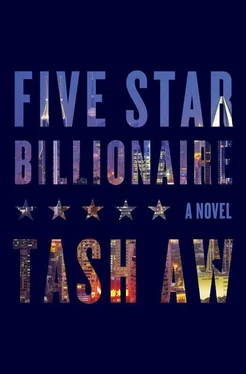


![Scott O’Hara - Five-Star Fugitive [= Border Town Girl]](/books/432138/scott-o-hara-five-thumb.webp)
